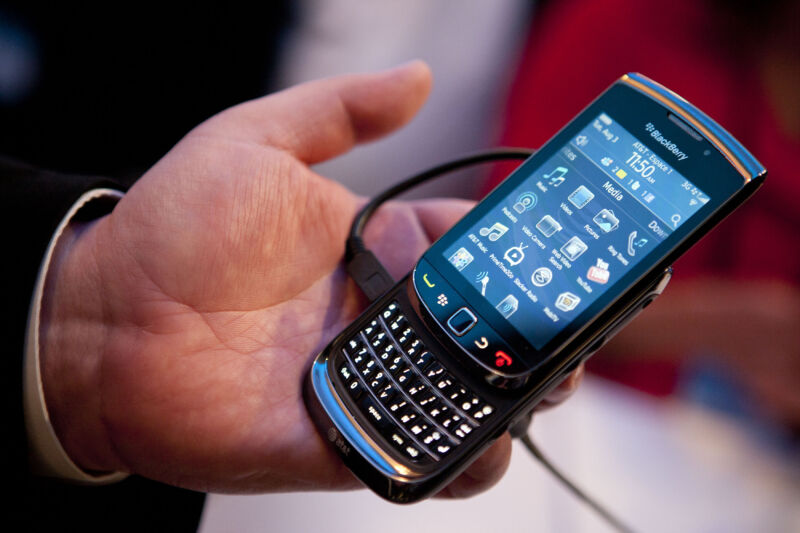Enlarge / The Blackberry Torch, the company’s first touchscreen phone, is held for display during its debut in New York in 2010. (credit: Bloomberg | Getty Images)
BlackBerry, the company that once dominated smart mobile devices, recently announced that it was finally discontinuing key services that support its phones. As of January 4th, the phones will no longer be provided with provisioning services, meaning that they will gradually lose the ability to join networks, including the cellular network.
It may seem difficult to imagine if you weren’t using cell phones at the time, but BlackBerry once dominated the smartphone market. Its keyboard-based hardware was widely adopted in corporate settings, in part because the services it provided typically ran through BlackBerry servers, allowing for high levels of security and control. An indication of its importance is that early internal builds of Android looked like a cheap BlackBerry knockoff, rather than the cheap iPhone knockoff that was eventually released.
Unlike the people who developed Android, BlackBerry’s leadership was blindsided by the iPhone’s popularity. It dismissed on-screen keyboards, and counted on its stranglehold on corporate services to maintain its market. It took over a year after the iPhone’s release for the company to come out with its own touch screen phone, and its software remained an awkward mix of old and new for some time after. In the mean time, corporate users fell in love with their Apple and Android phones, and compelled their IT departments to support them.
Read 4 remaining paragraphs | Comments

